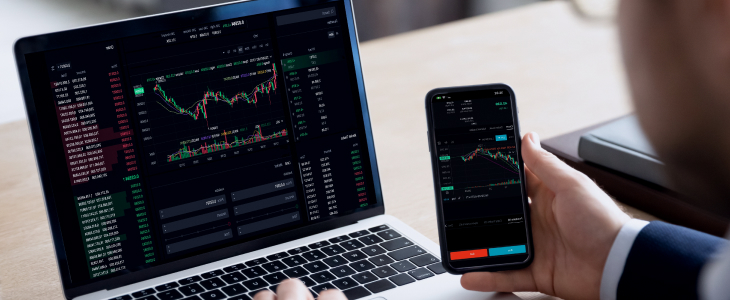
Mastering Forex Trading Techniques: Strategies for Success
Forex trading presents a multitude of opportunities for investors seeking to maximize their profits through currency exchange. However, to succeed in this highly dynamic market, it’s essential to understand various forex trading techniques that can enhance your strategy and increase your chances of success. Whether you are a beginner or a seasoned trader, mastering these techniques will empower you to make informed decisions and improve your overall trading performance. One of the best places to start is by researching the forex trading techniques Best Ivorian Brokers to select a reputable trading partner.
Understanding the Forex Market
The forex market, also known as the foreign exchange market, is the largest financial market in the world. It operates 24 hours a day, five days a week, allowing traders to buy and sell currency pairs. The key to successful trading lies in understanding how the market functions, including its various components such as currency pairs, pips, spreads, and leverage. Additionally, traders must keep abreast of global economic news and geopolitical events that can affect currency movements.
Key Forex Trading Techniques
1. Technical Analysis
Technical analysis involves analyzing historical price data to forecast future price movements. Traders use various chart patterns, indicators, and tools to identify trends and make informed trading decisions. Some of the most popular technical analysis tools include:
- Moving Averages: This tool helps smooth out price action by filtering out the “noise” of random price fluctuations.
- Bollinger Bands: This volatility indicator helps traders identify overbought or oversold conditions.
- Relative Strength Index (RSI): This momentum oscillator measures the speed and change of price movements, helping traders identify potential reversal points.

2. Fundamental Analysis
While technical analysis focuses on price movements, fundamental analysis examines economic, social, and political factors that can influence currency value. Traders use economic indicators such as GDP growth, unemployment rates, and inflation to assess a country’s economic health. Understanding the broader economic landscape enables traders to make well-informed decisions about long-term currency trends.
3. Risk Management
One of the essential components of successful forex trading is implementing effective risk management strategies. Risk management techniques can protect your capital and help you maintain a sustainable trading practice. Some common risk management strategies include:
- Setting Stop-Loss and Take-Profit Levels: These orders automatically close a trade when a certain price level is reached, preventing substantial losses and securing profits.
- Diversification: Spreading your investments across different currency pairs can mitigate the risk associated with volatility in any single currency.
- Proper Position Sizing: Determining how much of your capital to risk on a trade helps maintain overall portfolio balance and prevents substantial losses.
4. Trading Strategies
Many traders develop specific trading strategies based on their skills and market analysis. Some popular trading strategies include:
- Scalping: This short-term trading technique involves making numerous trades over a single day, aiming to capitalize on small price movements.
- Day Trading: Similar to scalping, day trading involves opening and closing trades within the same day to profit from intraday price fluctuations.
- Swing Trading: This strategy focuses on capturing “swings” in the market by holding a position for several days or weeks.
- Position Trading: This long-term strategy involves holding positions for weeks, months, or even years, often based on fundamental analysis.

5. Utilizing Technology
Today’s traders have access to numerous technological tools that can enhance their trading experience. These include:
- Trading Platforms: Sophisticated platforms allow users to analyze charts, execute trades, and monitor market changes in real time.
- Automated Trading Systems: These systems use algorithms to execute trades based on predetermined market conditions, reducing emotional decision-making.
- Mobile Trading Apps: These applications provide the convenience of trading from anywhere, allowing traders to stay updated on the market.
The Importance of Psychology in Trading
Emotional discipline and mental resilience play critical roles in a trader’s success. Understanding the psychological aspects of trading helps traders cope with market fluctuations and avoid impulsive decisions based on fear or greed. Techniques such as setting realistic goals, maintaining a trading journal, and practicing mindfulness can significantly enhance a trader’s mental fortitude.
Continuous Learning and Adaptation
The forex market is ever-evolving, and successful traders must be willing to continue learning and adapting. Keeping abreast of new strategies, market conditions, and global economic changes is paramount. Joining trading communities, attending webinars, and participating in online courses are excellent ways to stay informed and improve your skills.
Conclusion
Mastering forex trading techniques requires dedication, practice, and a commitment to continuous improvement. By implementing a combination of technical and fundamental analysis, managing risks effectively, and developing a solid trading plan, traders can enhance their chances of success in the forex market. Remember to remain disciplined, utilize available resources, and never stop learning; these principles will ultimately set you on the path to becoming a successful forex trader.

